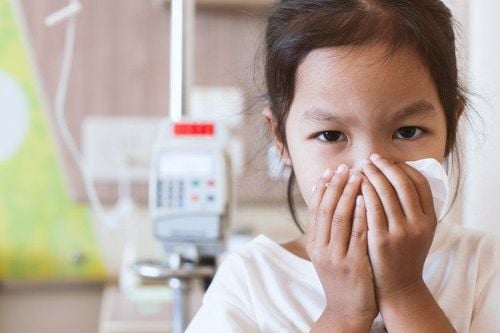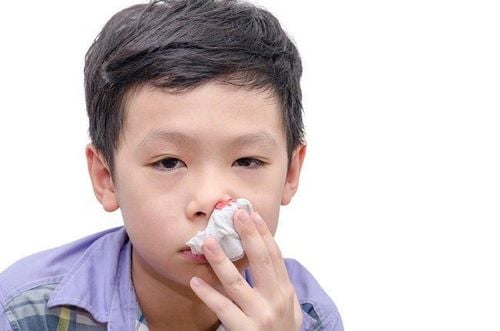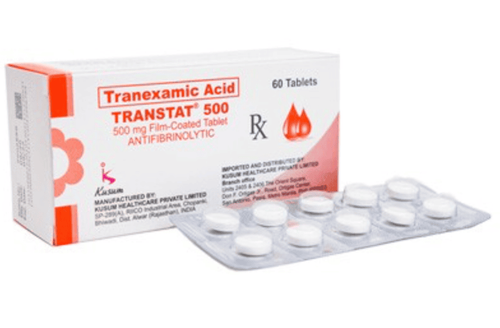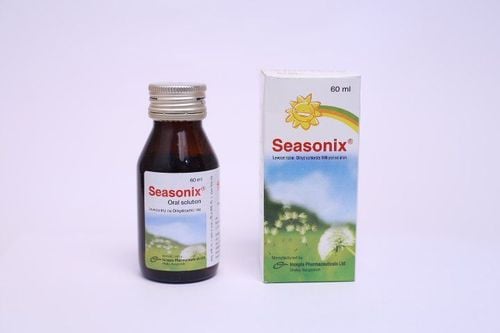This is an automatically translated article.
Nosebleeds are a phenomenon that can occur at any age, in which it is more common in children 2 - 10 years old, people 50 - 80 years old and pregnant women. Cold season nosebleeds are more common than other seasons of the year.
1. What is a nosebleed?
Nosebleed is also known as nosebleed . This is a common phenomenon, occurs when blood flows from the nose due to damage to the blood vessels inside the nose. Usually, blood only comes out from one side of the nose, and most people experience a nosebleed at least once in their life. In most cases, nosebleeds will stop when first aid measures are applied, which is to press your nose with your hand for about 5-10 minutes. However, some cases of severe nosebleeds may require medical attention.
Symptoms of nosebleeds include: Bleeding from one or both sides of the nose, the machine can run down the back wall of the throat, causing coughing up or vomiting blood. When the nose bleeds a lot and is swallowed, the patient may pass black stools.
Winter nosebleeds are more common than other seasons of the year.

Chảy máu cam thường xảy ra ở một bên mũi
2. Why is cold-season nosebleed so common?
During winter, nosebleeds are more common than in other seasons. The reason is because winter often has dry air, causing the mucous membrane of the nasal mucosa to dry, easily tear, leading to rupture of blood vessels, causing nosebleeds. As the blood clots, the wound will scab over, scab over, and continue to bleed.
In addition, in winter, colds and sinusitis are more common. In addition, indoor allergens such as dust and mold also thrive in the cold season. These factors make the nose prone to inflammation, dilate blood vessels in the nose, and irritate the nasal mucosa leading to nosebleeds. In particular, the habit of overusing anti-nasal drugs when having a cold will dry and irritate the nasal mucosa, leading to nosebleeds.
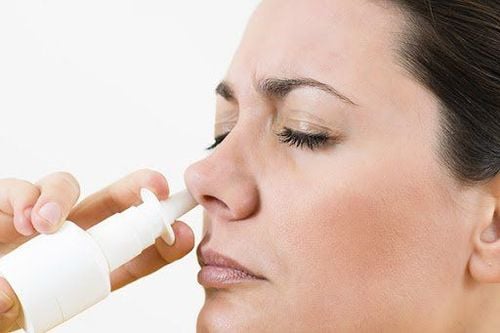
Dùng thuốc chống nghẹt mũi quá nhiều cũng làm tăng nguy cơ chảy máu mũi
3. Measures to prevent and handle nosebleeds in cold season
How to treat a nosebleed in winter is: When the bleeding is new, it is recommended to use a decongestant spray. If possible, the patient should spray 2 drops of the decongestant onto a cotton pad, then place it in the nostril, pressing on the soft part of the nose. In addition, patients can also try using an ice cube, applied to the nose to constrict blood vessels in the nose, helping to stop bleeding faster.
After stopping the nosebleed, the patient tries not to blow his nose for 24 hours and avoid excessive exercise for at least 2 hours to avoid recurrent nosebleeds.
To prevent unexpected nosebleeds in winter, each person should pay attention to apply a little vaseline or moisturizer to the nose 1-2 times a day. In addition, nasal drops with physiological saline, moisturizing spray, using a nebulizer near the bed and avoiding rubbing and blowing your nose too hard are also measures to reduce the risk of nosebleeds. winter .
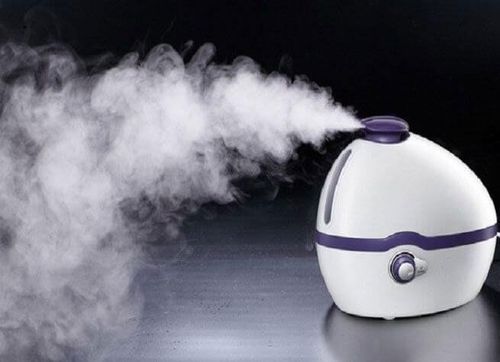
Dùng máy phun sương tạo ẩm trong phòng
People with frequent nosebleeds should also adjust their diet as follows: Eat a lot of iron to create hemoglobin of red blood cells; increase foods rich in vitamin K to help promote blood clotting; Add foods rich in vitamin C to create collagen for body tissue organization and eat foods rich in zinc to increase the stability of blood vessels.
In case of severe nosebleeds, which cannot be stopped by routine first aid, frequent nosebleeds, are taking anticoagulants or suffer from hemophilia,... the patient should see a specialist doctor. Otorhinolaryngology. This helps the patient to accurately diagnose the cause of the nosebleed and take appropriate treatment interventions.
Pediatrics department at Vinmec International General Hospital is the address for receiving and examining diseases that infants and young children are susceptible to: viral fever, bacterial fever, otitis media, pneumonia in children, ... With modern equipment, sterile space, minimizing the impact as well as the risk of disease spread. Along with that is the dedication from the doctors with professional experience with pediatric patients, making the examination no longer a concern of the parents.
Customers can directly go to Vinmec Health system nationwide to visit or contact the hotline HERE for support.





